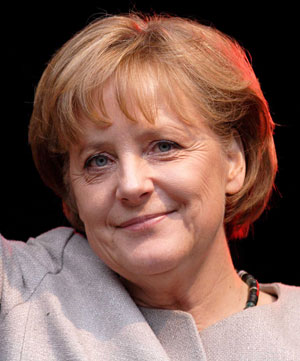The German Foreign Ministry has informed Mizzima that at this time it does not support the proposed UN commission of inquiry to investigate war crimes and human rights violations in ...
The German Foreign Ministry has informed Mizzima that at this time it does not support the proposed UN commission of inquiry to investigate war crimes and human rights violations in Burma.
In an e-mailed response to Mizzima’s questions regarding Germany’s stance on the proposal, German Foreign Ministry spokeswoman Theresa Schoenfeld told Mizzima that “to ensure that this new initiative [the inquiry] is successful and has positive consequences, it is important to continue to monitor the situation and crucial to find some co-operation mechanism with the [Burmese] national authorities.”
 The reluctance of Chancellor Angela Merkel’s centre-right coalition government to support the UN inquiry comes amid reports by The Washington Post that China had waged a “high-octane diplomatic campaign” over the past two months to convince Asian and European nations to oppose the creation of a commission of inquiry.
The reluctance of Chancellor Angela Merkel’s centre-right coalition government to support the UN inquiry comes amid reports by The Washington Post that China had waged a “high-octane diplomatic campaign” over the past two months to convince Asian and European nations to oppose the creation of a commission of inquiry.
The Post reported that just days after the mid-August announcement the United States supported the creation of such an inquiry, Chinese UN ambassador Li Baodong “paid a confidential visit” to Vijay Nambiar, UN secretary general Ban Ki-moon’s chief of staff and the UN special envoy to Burma, to voice Beijing’s strong opposition to any inquiry.
According to Post writer Colum Lynch, three separate UN sources privy to the details of the meeting said that Baodong told Nambiar the proposed Burma inquiry was “dangerous and counterproductive, and should not be allowed to proceed”.
In response, NLD co-founder and veteran political prisoner Win Tin told Mizzima he was disappointed with Berlin’s decision not to support the inquiry, a proposal first made in March this year by UN special rapporteur on the human rights situation in Burma, Tomás Ojea Quintana.
Win Tin said it was “very upsetting that Germany is siding with China and not supporting a UN inquiry. The military’s repeated attacks on Burma’s ethnic nationalities are very severe and have killed many people. These crimes must be investigated by the international community.”
Although 10 European Union (EU) nations including France and Britain favour an inquiry, opposition from the EU’s largest member, would likely prevent the EU executive body, the European Commission, from taking action to support the proposal or take a stronger stance against the regime.
When informed of the German spokesman’s statement, Mark Farmaner from Burma Campaign UK took particular issue with the suggestion that there had to be a “co-operation mechanism” with the Burmese regime for the initiative to proceed.
He offered this rebuttal: “UN inquiries and the International Criminal Court were created precisely because dictatorships won’t investigate their own human rights abuses. It is ridiculous for Germany to imply that its support for establishing a UN inquiry depends on the generals’ co-operation.”
“If Germany applied this logic domestically they’d get rid of their own police force and courts and ask criminals to voluntarily go to jail,” Farmaner added.
Monk calls German stance ‘strange’
Ashin Sopaka, one of the leading figures in Burma’s exiled monk movement, told Mizzima he was not surprised to learn that Germany was not supporting the UN inquiry. Sopaka, who speaks German and lived there for seven years after receiving asylum, said Germany’s stance on Burma was far weaker than many other western nations.
“Germany’s policy on Burma is really very strange, the government is more interested in business. It’s like the German government doesn’t want to accept that in Burma there is a horrible military that kills many people.”
Sopaka, who has travelled throughout Germany, added that the government’s position on Burma was quite out of step with the overall German public.
German firms shipped weapons plant to junta
Major Sai Thein Win, a former senior scientist in the Burmese military, defected last year with documentation revealing that the Burmese regime is using advanced equipment supplied by German firms for top-secret rocket research and a nuclear programme.
In a Democratic Voice of Burma documentary on Burma’s nuclear programme, he detailed how the firm Deckel Maho Gildemeister (DMG) sent engineers to assist with the installation of specialised imported machinery in Burmese military-owned factories.
Sai Thein Win said DMG machinery was designed to make precision metal parts in the manufacturing of rocket and missile parts. In addition to DMG, the Burmese military had also bought equipment from German firm Trumpf, including a specialised laser cutting machine designed to cut sheet metal quickly.
Officials from the German embassy in Rangoon visited two of the factories where the machinery was being used in 2007, 2008 and last year. However, despite evidence provided by Sai Thein Win that the equipment was being used for non-civilian purposes, the German government has thus far done nothing to restrict the sale of such plant.



